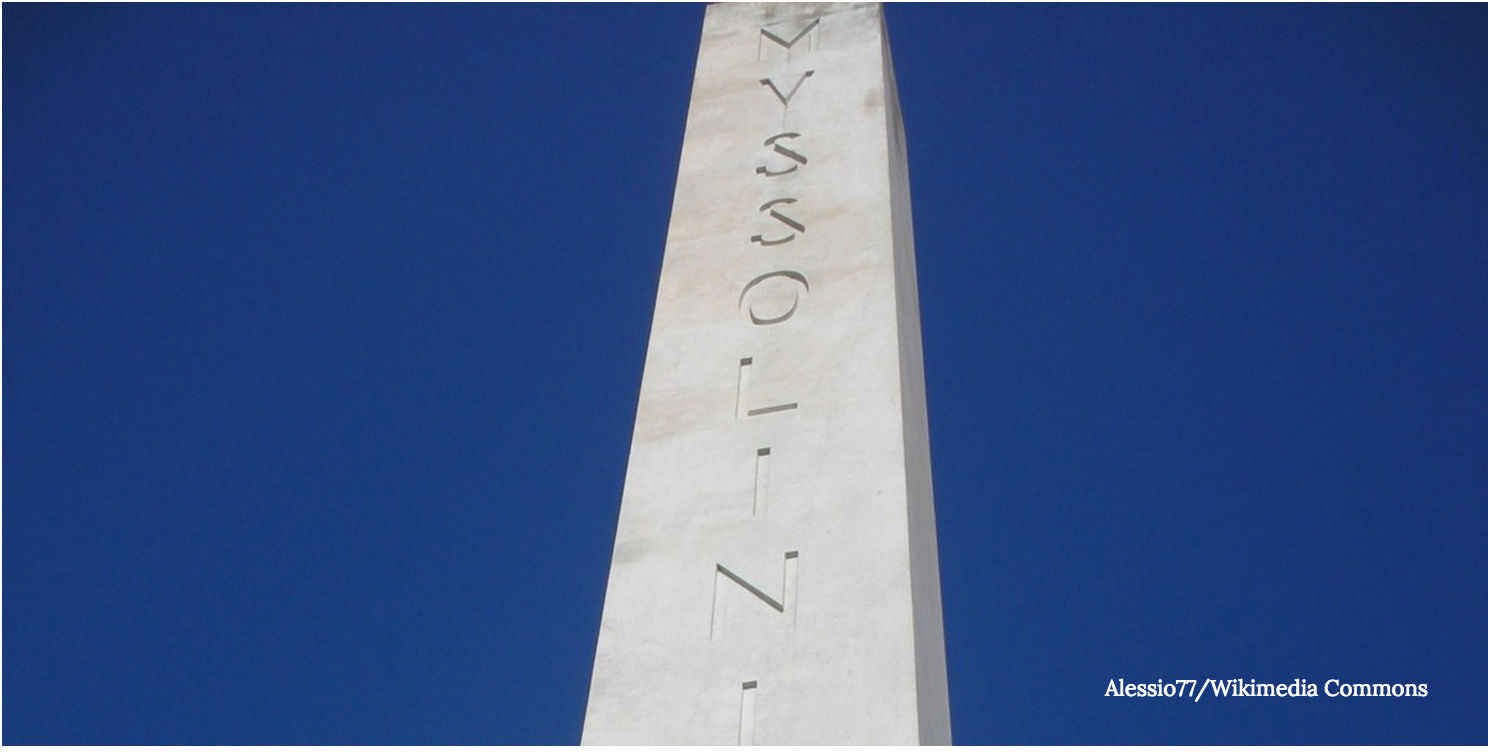Mussolini Message Found Under Rome Obelisk
– A message from the Italian Fascist leader Benito Mussolini lies underneath a giant obelisk in Rome, a new archival research has discovered.
Written on parchment in Latin, the 1,200-word essay was carefully placed in a metal box with a few gold coins. It was then buried beneath the base of a 300-ton obelisk bearing the Latin inscription MVSSOLINI DVX, meaning Mussolini Duce (Mussolini the Leader).
Still standing in the Foro Italico sports complex in Rome, the 120-foot-high white marble monolith was unveiled to cheering crowds in 1932 as a monument to the power of fascism.

At that time, Mussolini (1883–1945) had already turned the Italian government into a dictatorship.
Titled “Codex Fori Mussolini,” the text was supposed to remain an unreachable secret for contemporaries.
Mussolini’s message from his rule, which ended in 1943, was intended to reach the future. The dictator believed the text would have only been read at the fall of the obelisk and consequently, of fascism.
The obelisk’s physical collapse, however, wasn’t necessary to find the Codex.
Two classics researchers, Bettina Reitz-Joosse at the University of Groningen, and Han Lamers, from Humboldt University Berlin and Catholic University of Leuven, were able to piece together the text from three sources found in libraries and archives in Rome.
Written by the classical scholar Aurelio Giuseppe Amatucci (1867-1960), the text presents a propagandistic history of Italian fascism.
“After the First World War, Italy was on the brink of collapse,” Lamers said. “In the account, Mussolini is seen as regenerating the country through his superhuman insight and resoluteness.”
He noted the account reveals Mussolini’s grandiose attempt to present himself as a new Roman emperor and “the savior of the Italian people.”
While the second section of the text relates to the Fascist Youth Organization and youth programs, the third part focuses on the transport and erection of the obelisk.
“The monument is presented as a symbol of the eternal reign of Italian fascism,” Lamers said.
According to the researchers, there’s a specific reason for the eulogy written in Latin.
“Latin had a special significance for fascists Reitz-Joosse said. “It was the language of the Roman Empire that they hoped to regenerate. But it was also an eternal language, rather appropriate to send messages to the future.”
Lamers and Reitz-Joosse’s research has been recently published by Bloomsbury publishing.
They stressed the book is not aimed at serving the Codex’s original purpose of echoing the voice of fascism into the future.
“We think we have countered its goal by showing the text’s rhetorical and manipulative strategies and its highly selective references to Roman history,” Lamers said.



 Creators of mankind
Creators of mankind Description of “Tall white aliens”
Description of “Tall white aliens” Where they came from?
Where they came from? About hostile civilizations
About hostile civilizations The war for the Earth
The war for the Earth “Tall white aliens” about eternal life
“Tall white aliens” about eternal life Video: “Nordic aliens”
Video: “Nordic aliens” Aliens
Aliens Alien encounters
Alien encounters The aliens base
The aliens base UFO
UFO Technology UFO
Technology UFO Underground civilization
Underground civilization Ancient alien artifacts
Ancient alien artifacts Military and UFO
Military and UFO Mysteries and hypotheses
Mysteries and hypotheses Scientific facts
Scientific facts


















